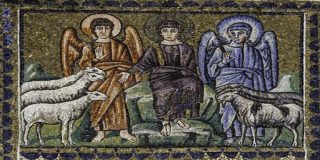A proper regard for animals is arguably a significant blind spot in contemporary Christian thinking. It is a blind spot Rev Dr Andrew Linzey, a member of the Faculty of Theology at Oxford University and Director of the Oxford Centre for Animal Ethics, has spent his life trying to correct.
Linzey has written twenty books and over one hundred articles on the ethical treatment of animals. Creatures of the Same God is a collection of nine of Linzey’s essays, each substantially revised for this volume. The collection is somewhat eclectic, covering topics including resources for animal theology in world religions, animal theology from a Christian perspective, conflicts between animal theology and ecotheology, traditions in early Mediterranean and Chinese Christianity that emphasised the importance of animals, and animal inclusive liturgies. What emerges is a strong case that the Christian Church should re-engsge with biblical teaching on animal wellbeing, recognising that Christian theology and church history provide rich veins to mine.
Where Linzey at times draws tenuous conclusions from church history, his arguments from theology and exegesis are robust, although they fall short in this volume of providing a substantial case for vegetarianism. Chapter 2 is exegetically and theologically the strongest portion of the book. Linzey attacks the arrogance of thinking we humans alone matter to God. Rather Scripture reveals a Creator who values all he created, giving animals value prior to and separate from their usefulness to humans. The granting of dominion to humankind was never a commission to exploit animals – after all the following verses describe humankind as vegetarian! – but is rather a call to exercise our power in a servant hearted manner that secures the wellbeing of the animals. Thus Christian theology supports the full spectrum of concern for animals as it has historically progressed from avoiding cruelty, to wider animal welfare concerns, to animal rights, with a christian view of animal rights grounded in God’s right to have what he created treated with respect.
From theology and history Linzey moves to liturgy, and here his writing becomes deeply personal and moving. Not only is there a theological basis for liturgies that include animals and all creation, but animals play an important role in people’s lives, for example as companions, and a thoughtful liturgy allows people to celebrate this and to mourn the loss of their animals.Although ridiculed by some for his attempt to write animal liturgies, Linzey not only composes eloquent liturgies, but reminds us that indeed we are all creatures of the same God.
The book closes with Linzey’s call to the church. We need, he argues, an animal bible (ie to draw on animal friendly texts of Scripture); animal theology; animal ministry (ie ministry of care for animals); and animal rights. Although this call may be alien to current practise and orientation, it is difficult to fault.




